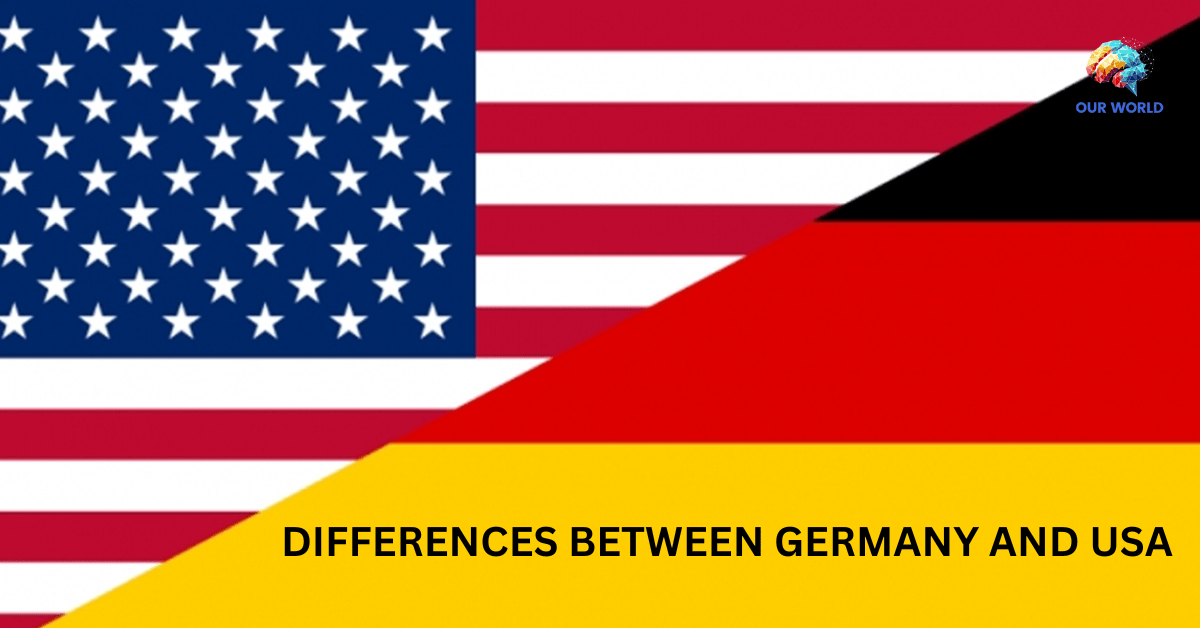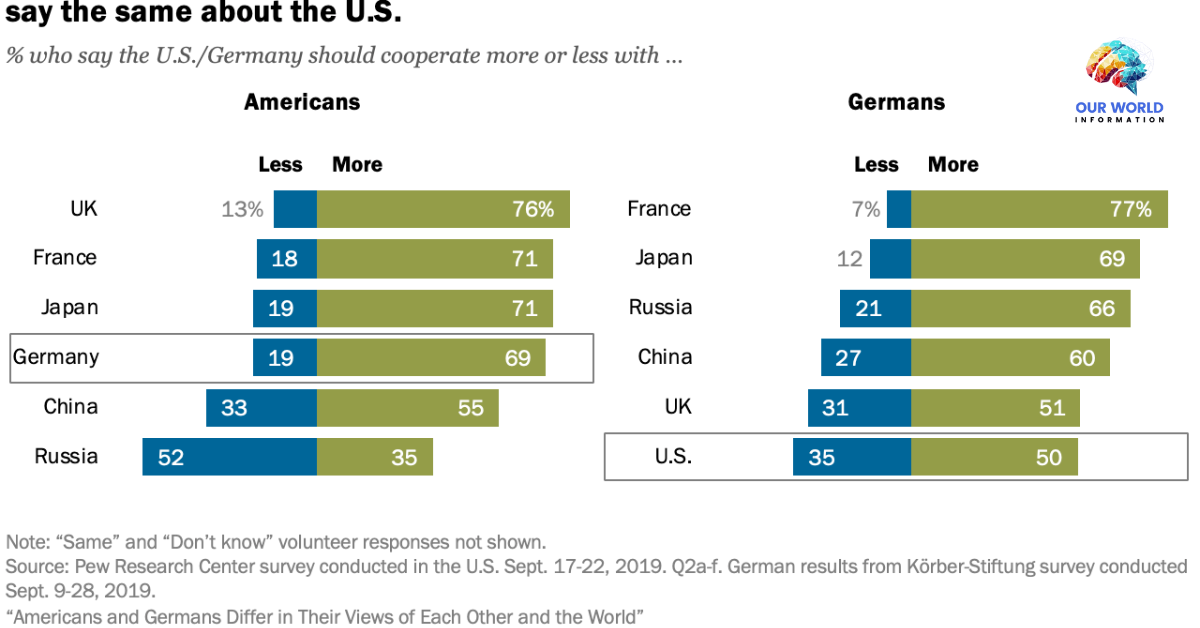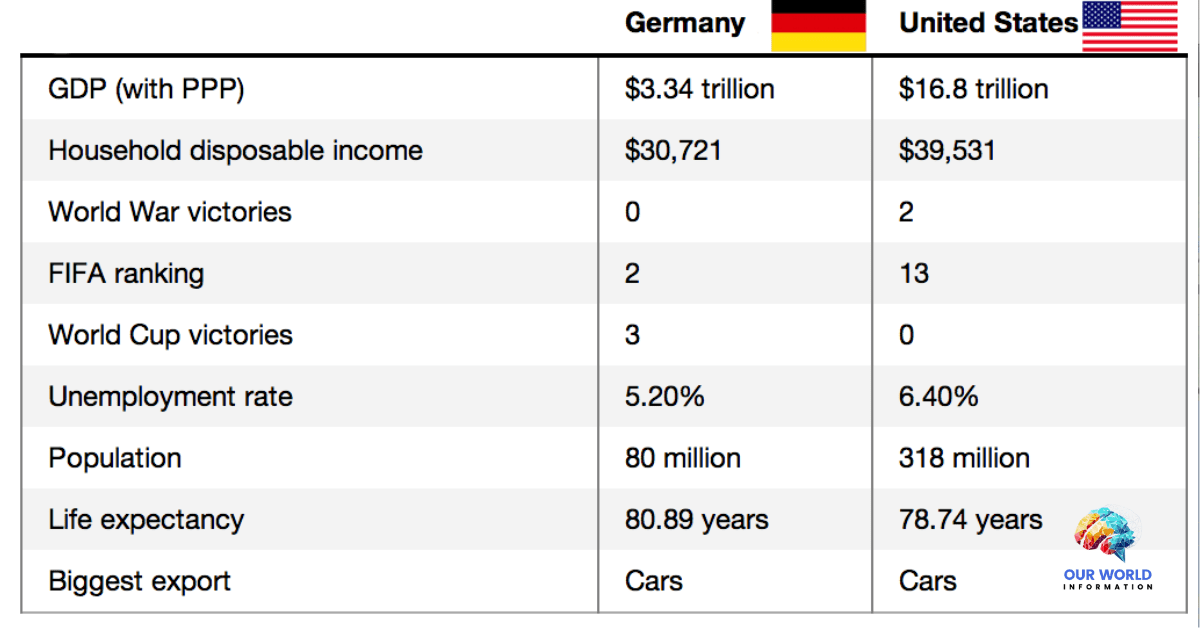
When we think about Germany and the USA, it’s easy to see that these two countries, while both Western, are worlds apart in many ways. Their cultures, social norms, and day-to-day lifestyles are different in more ways than one might expect. If you’ve ever wondered what it’s like to experience life on both sides of the Atlantic, you’re in the right place. Let’s dive into the key Differences Between Germany and usa.
Culture and Lifestyle
One of the most noticeable differences between Germany and the USA is their culture and lifestyle. The USA is known for its fast-paced life, where everyone seems to be in a hurry. People here often prioritize convenience and speed, which is reflected in everything from fast food to drive-thru services. On the other hand, Germany has a slower pace of life, where quality and attention to detail are highly valued. Germans often take their time to enjoy a meal, savoring every bite without feeling rushed.

Work-Life Balance
Work-life balance is another area where Germany and the USA differ significantly. In the USA, the work culture tends to be more intense, with long working hours and fewer vacation days. Many Americans take pride in their work ethic and often find it hard to disconnect from their jobs. In contrast, Germans place a high value on work-life balance. They work efficiently during office hours but are serious about taking time off. In Germany, it’s common to have a minimum of four weeks of vacation per year, and people actually take it.
Public Transportation
Public transportation is an integral part of daily life in Germany. The country is known for its efficient and reliable public transport system, which includes trains, buses, and trams that connect even the smallest towns. In contrast, the USA is heavily dependent on cars. Public transportation in many American cities can be unreliable or nonexistent, making a car almost a necessity for getting around.

Healthcare System
The healthcare systems in Germany and the USA are fundamentally different. Germany has a universal healthcare system, where every citizen has access to healthcare services, often funded by both employers and employees. In the USA, the healthcare system is mostly privatized, and having health insurance is crucial to avoid hefty medical bills. This difference is a major point of debate and often influences how people view the quality of life in each country.
Education System
The education systems in Germany and the USA also differ in several ways. In Germany, education is highly structured, with a strong emphasis on vocational training. From a young age, students are tracked into different types of schools based on their academic performance, leading them either to university or vocational training. In the USA, the education system is more flexible, allowing students to explore various fields before choosing a career path. The American system also emphasizes extracurricular activities, which play a significant role in the overall educational experience.
Social Norms and Etiquette
Social norms and etiquette vary greatly between Germany and the USA. In Germany, punctuality is taken very seriously. Being even a few minutes late is often considered disrespectful. Americans, while valuing punctuality, are generally more relaxed about time. Additionally, small talk is not as common in Germany as it is in the USA. Germans tend to be more reserved and direct in their communication, while Americans are more likely to engage in casual conversation with strangers.
Food and Dining
Food culture is another area where the differences between Germany and the USA are quite pronounced. German cuisine is known for its hearty meals, including sausages, bread, and beer. Meals are often an important time for families to gather and enjoy together. In the USA, food is more diverse, reflecting the country’s melting pot of cultures. Fast food is a significant part of American culture, and eating on the go is common.
Environmental Consciousness
Germany is known for its strong environmental policies and commitment to sustainability. Recycling is a way of life, and renewable energy sources are widely used. The USA, while making strides in environmental protection, has a more varied approach depending on the region. While some states are leaders in renewable energy and environmental protection, others are less stringent in their environmental policies.
Government and Politics
The political systems in Germany and the USA are different in structure and function. Germany is a federal parliamentary republic, where the Chancellor is the head of government. The USA is a federal republic with a presidential system, where the President holds significant power. The political landscape in the USA is more polarized, with a strong two-party system, while Germany has a multi-party system that often requires coalition governments.
Diversity and Multiculturalism
The USA is often referred to as a melting pot due to its diverse population. People from all over the world have immigrated to the USA, making it one of the most culturally diverse countries in the world. Germany, while also diverse, has a more homogeneous population, with a strong emphasis on integrating immigrants into German culture. Both countries celebrate their diversity, but the ways in which they approach and manage it differ.
Housing and Living Arrangements
Housing and living arrangements vary significantly between Germany and the USA. In Germany, renting is more common than buying, and many people live in apartments rather than houses. The USA, on the other hand, has a strong culture of homeownership, with many people living in single-family homes. The size of living spaces in the USA is generally larger, with more emphasis on having a big house with a yard.
Consumer Behavior
Consumer behavior in Germany is different from that in the USA. Germans tend to be more cautious and deliberate in their purchasing decisions, often valuing quality over quantity. They are also more likely to save money and avoid debt. In contrast, Americans are more inclined to spend and use credit, with a strong culture of consumerism that encourages buying new and trendy products.
Language and Communication
While English is widely spoken in both countries, the way people communicate in Germany and the USA is quite different. In Germany, the language is more formal, and people are often direct and to the point. In the USA, communication is typically more casual, and Americans tend to use more informal language, even in professional settings.
Public Holidays and Celebrations
Public holidays and celebrations vary between Germany and the USA. In Germany, traditional holidays like Christmas and Easter are celebrated with great enthusiasm, and public holidays often involve quiet reflection or time spent with family. In the USA, holidays like Thanksgiving and the Fourth of July are major events, often involving large gatherings, parades, and fireworks.
Leisure and Hobbies
Leisure time is spent differently in Germany and the USA. Germans often enjoy outdoor activities like hiking, cycling, and spending time in nature. They also value cultural activities such as visiting museums, attending concerts, and participating in local festivals. In the USA, sports play a significant role in leisure time, with many Americans spending weekends watching or participating in sports. The USA also has a strong entertainment industry, with movies, TV shows, and video games being popular pastimes.
Conclusion
Germany and the USA, while both Western nations, have distinct differences that make each unique. From work-life balance and healthcare to social norms and consumer behavior, these differences reflect the diverse ways in which people live and interact in these countries. Whether you’re planning to visit, work, or live in either Germany or the USA, understanding these differences can help you better navigate the cultural landscape and make the most of your experience.
FAQs
What is the main difference in work culture between Germany and the USA?
Germany places a high value on work-life balance, with shorter working hours and more vacation time compared to the USA, where long hours and fewer vacations are common.
How does public transportation in Germany compare to the USA?
Germany has a highly efficient and reliable public transport system, while the USA is more car-dependent, with public transportation varying greatly by region.
Is healthcare free in Germany?
Germany has a universal healthcare system funded by employers and employees, providing access to healthcare services for all citizens, unlike the mostly privatized system in the USA.
How do social norms differ between Germany and the USA?
Germans are more punctual and reserved, valuing direct communication, while Americans are generally more relaxed about time and engage in more casual conversation.
What are the key differences in the education systems of Germany and the USA?
Germany’s education system is more structured with a focus on vocational training, while the USA offers a more flexible approach, allowing students to explore various fields.
How does the food culture differ between Germany and the USA?
German cuisine is hearty and traditional, with meals being a time for family, while American food is diverse and often includes fast food, reflecting the country’s multicultural population.
What is the approach to environmental issues in Germany compared to the USA?
Germany is a leader in environmental policies and sustainability, while the USA’s approach varies by region, with some states being more environmentally conscious than others.
How do housing preferences differ between Germany and the USA?
Renting is more common in Germany, with many living in apartments, while the USA has a strong culture of homeownership, with larger living spaces being the norm.
What is the difference in consumer behavior between Germany and the USA?
Germans are more cautious and value quality, often avoiding debt, while Americans are more inclined to spend and use credit, with a strong culture of consumerism.
How do leisure activities in Germany compare to those in the USA?
Germans enjoy outdoor and cultural activities, while Americans often engage in sports and entertainment, such as movies and video games, during their leisure time.

